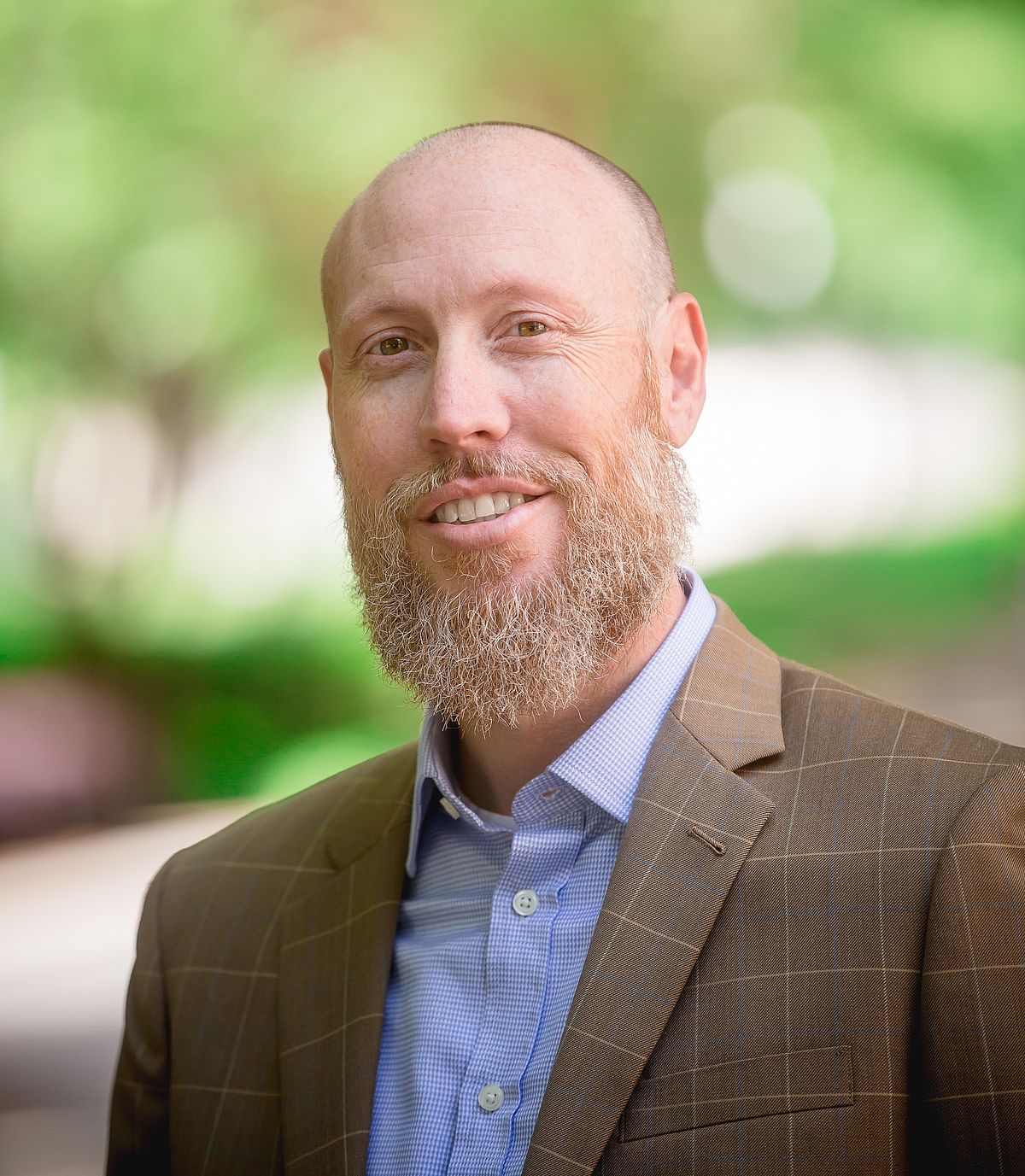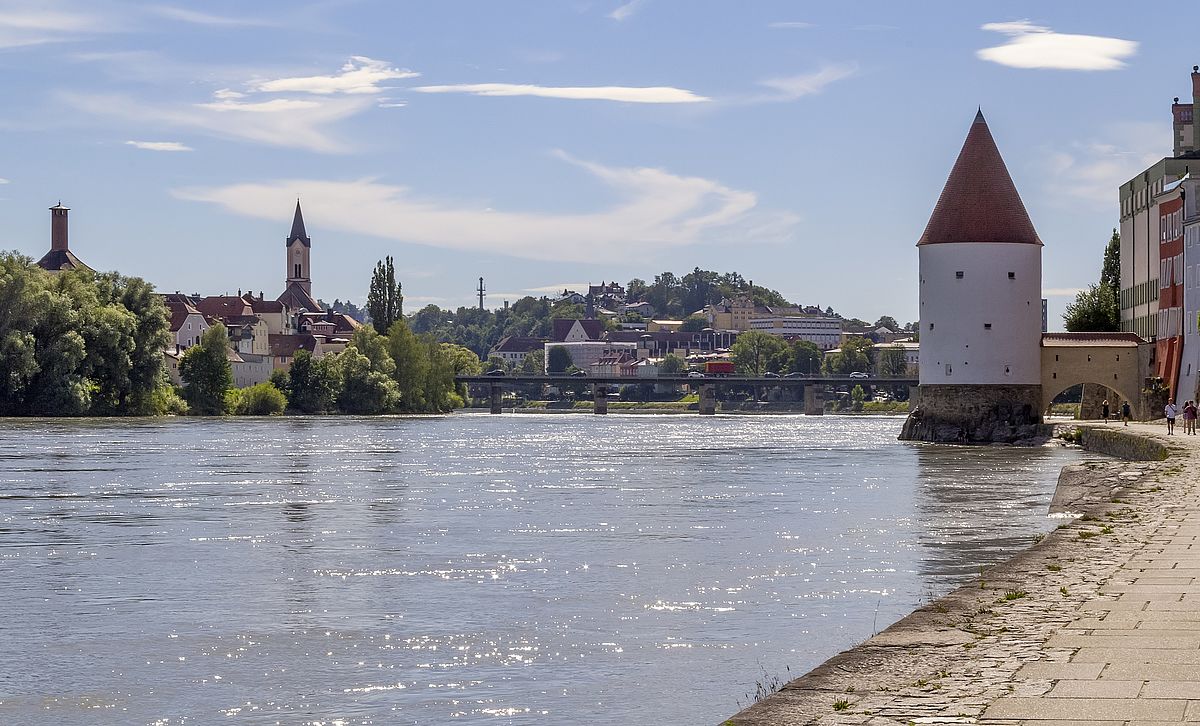Symbolic picture: Colourbox.
Daniel J. Henderson is a Professor of Economics at the J. Weldon and Delores Cole Faculty Fellow in the Department of Economics, Finance and Legal Studies in the Culverhouse College of Business at the University of Alabama. His diverse research interests encompass nonparametric Econometrics and Statistics, Panel Data Econometrics, Applied Microeconometrics and Economics of Education. Bringing his broad and outstanding scientific expertise to the University of Passau, he has just spent - after an initial visit in December 2022 - June and July 2023 as a Research-in-Residence Fellow at the Passau International Centre for Advanced Interdisciplinary Studies (PICAIS). Professor Henderson joined the Chair of Statistics and Data Analytics of Professor Harry Haupt and the Teaching Unit of Computational Statistics and Mathematics of Dr. Joachim Schnurbus.
Your home university, the University of Alabama, has just under 38,000 students, more than three times as many as the University of Passau. What has it been like for you so far to conduct research at a small-town university?
My university is quite large, but the population of the town is relatively small (around 100,000 inhabitants). In the summer, when students are not around, it feels somewhat similar. However, during the semester, and especially during the (American) football season, our town is quite the destination (restaurants are full and local venues are packed). During that time, there is a lot more foot traffic both on campus and in our offices. Here, in Passau, even though students are around and active, my office is very quiet. I run into the occasional graduate student, but otherwise am able to conduct research with almost no interruptions.
What are the main goals of your research project, and what specific research questions do you want to address?
Being that I am an economist and I am working with statisticians, we have two major goals in our research. The first is to develop new tools that can be useful in economics/statistics as well as other fields. We are developing both estimators and tests to deal with multidimensional panel data models that allow for dynamics. These are very popular in international trade and housing price models, but our application is to study migration flows. We hope to be able to forecast migration flows and help identify determinants of migration flows.
Are there specific regions or countries in Europe that you focus on in your research? If so, what factors influenced your choice?
We are focused on the countries that receive the most migrants; these are mostly Southern European countries. In part, this is to simplify the analysis as we are looking over a long time-frame and immigration to many nations in Europe (from outside of Europe) is less pronounced. In future studies, we would like to extend our research to study the remaining countries in the European Union.
How do you collaborate with researchers or institutions in Passau during your stay? Are there any particular resources or expertise that you use for your research?
I have had many discussions with the faculty from Passau over the past 7 years or so, but it never really led to anything as the time difference stalled our progress. Here, we are able to discuss it multiple times per day. We have a morning coffee, discuss what we thought the night before and then go back to our offices. Our afternoon coffee is spent revising and planning for the next steps. It has so far been very productive and has probably led to a research agenda as opposed to a single project.
Given that we are from different fields, we have relied on the relative expertise of each side. Me, being in economics, I have focused on issues of endogeneity that are related to economic phenomena that tend to complicate the analysis. The statisticians here in Passau are experts in dynamic models and we hope to bridge this gap between our areas of expertise.
What are your future research plans in this area beyond your two-month stay in Passau?
We hope to have the complete framework for our project finished prior to leaving Passau. Once I return home we will finish the project and then submit it to a journal. We then plan to start some of the other projects we have discussed over coffee.
What do you miss about your home country?
I very much like Bavarian food, but I miss spice. I eat a lot of spicy food, and paprika, while delicious, is not spicy enough for me.
What do you particularly like about Passau?
My favourite part of my day is walking to and from work. I walk down cobblestone streets, cross a bridge and walk along a river. My walk is beautiful: the buildings, bridges, rivers and hills. I am also particularly fond of the biergartens. A pretzel, "Wurst" and a beer make for a lovely evening.
Professor Harry Haupt
What modern statistical methods are there to analyse complex data?
What modern statistical methods are there to analyse complex data?
Prof. Dr. Harry Haupt has held the Chair of Statistics and Data Analytics at the University of Passau since 2012. From 2014 to 2020, he was Vice President for Research, Promotion of Young Researchers and International Affairs. Previously, he held the Chair of Econometrics and Statistics at Bielefeld University from 2007 to 2012 and was spokesperson of the Center for Statistics there from 2011 to 2012. He has been a member of the Board of the German Statistical Society since 2012, chairs the Committee on Statistical Theory and Methodology there from 2012 to 2020, and has been Editor of AStA - Advances in Statistical Analysis since 2023.









